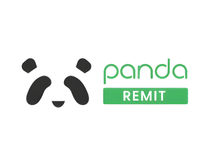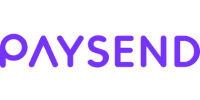Compare all the best ways to send money to South Korea
Wise is the overall best way for sending KRW from abroad, appearing 100% of the time in our searches for KRW transfers.
They charge $47.31 in fees (based on $7,000 transfer) and add -0.04% markup to the KRW exchange rate.
For more details on KRW transfers, keep reading.
We’ll give you the best, fastest, and cheapest options, provide you with expert tips, KRW transfer deals, and explain everything you need to know about money transfers to South Korea.
Send money to South Korea
"Over 16 million customers use Wise, mostly for their excellent mobile app, transparent fee structure & use of mid-market rates. Now increasingly used for larger transfers."
"Over 16 million customers use Wise, mostly for their excellent mobile app, transparent fee structure & use of mid-market rates. Now increasingly used for larger transfers."
"Over 16 million customers use Wise, mostly for their excellent mobile app, transparent fee structure & use of mid-market rates. Now increasingly used for larger transfers."
"Xe has over 30 years of currency exchange experience, and is one of the most reputable names on the market. 200 countries, 100 currencies, & funds often received in seconds."
"Xe has over 30 years of currency exchange experience, and is one of the most reputable names on the market. 200 countries, 100 currencies, & funds often received in seconds."
"Xe has over 30 years of currency exchange experience, and is one of the most reputable names on the market. 200 countries, 100 currencies, & funds often received in seconds."
"Over 16 million customers use Wise, mostly for their excellent mobile app, transparent fee structure & use of mid-market rates. Now increasingly used for larger transfers."
"Over 16 million customers use Wise, mostly for their excellent mobile app, transparent fee structure & use of mid-market rates. Now increasingly used for larger transfers."
"Over 16 million customers use Wise, mostly for their excellent mobile app, transparent fee structure & use of mid-market rates. Now increasingly used for larger transfers."
"Revolut has 50+ million customers globally. You can hold up to 36 currencies in the app and send money quickly in 70+ currencies to 160+ countries."
"Revolut has 50+ million customers globally. You can hold up to 36 currencies in the app and send money quickly in 70+ currencies to 160+ countries."
"Revolut has 50+ million customers globally. You can hold up to 36 currencies in the app and send money quickly in 70+ currencies to 160+ countries."
"Xe has over 30 years of currency exchange experience, and is one of the most reputable names on the market. 200 countries, 100 currencies, & funds often received in seconds."
"Xe has over 30 years of currency exchange experience, and is one of the most reputable names on the market. 200 countries, 100 currencies, & funds often received in seconds."
"Xe has over 30 years of currency exchange experience, and is one of the most reputable names on the market. 200 countries, 100 currencies, & funds often received in seconds."
"OFX have been helping individuals and businesses send money for over 25 years. Transfer in 50+ currencies to 170+ countries, with 24/7 phone access to currency experts."
"OFX have been helping individuals and businesses send money for over 25 years. Transfer in 50+ currencies to 170+ countries, with 24/7 phone access to currency experts."
"OFX have been helping individuals and businesses send money for over 25 years. Transfer in 50+ currencies to 170+ countries, with 24/7 phone access to currency experts."
"Xoom, a PayPal service, allows you to send money in more than 160 countries. You can send cash for over-the-counter pickup or home delivery, as well as send by bank transfer or debit card."
"Xoom, a PayPal service, allows you to send money in more than 160 countries. You can send cash for over-the-counter pickup or home delivery, as well as send by bank transfer or debit card."
"Xoom, a PayPal service, allows you to send money in more than 160 countries. You can send cash for over-the-counter pickup or home delivery, as well as send by bank transfer or debit card."
"Securely send money to and from 150+ countries and 20+ currencies. Same-day transfers avaialble on most major currencies."
"Securely send money to and from 150+ countries and 20+ currencies. Same-day transfers avaialble on most major currencies."
"Securely send money to and from 150+ countries and 20+ currencies. Same-day transfers avaialble on most major currencies."
"Send money to over 40 destinations online and in the mobile app."
"Send money to over 40 destinations online and in the mobile app."
"Send money to over 40 destinations online and in the mobile app."
"Paysend has transparent fees and rates, with transfer sent within seconds to your recipient's bank. They also have global 24/7 support for any enquiries, and bank-level security."
"Paysend has transparent fees and rates, with transfer sent within seconds to your recipient's bank. They also have global 24/7 support for any enquiries, and bank-level security."
"Paysend has transparent fees and rates, with transfer sent within seconds to your recipient's bank. They also have global 24/7 support for any enquiries, and bank-level security."
"Moneygram is a well established service with over 80 years in the sector. They support over 200 countries worldwide and have over 440,000 retail locations."
"Moneygram is a well established service with over 80 years in the sector. They support over 200 countries worldwide and have over 440,000 retail locations."
"Moneygram is a well established service with over 80 years in the sector. They support over 200 countries worldwide and have over 440,000 retail locations."
How to send money to South Korea with the best rate
Always compare rates
Don't pay more than you have to. Use our live comparison tool to make sure you aren't missing the best rates when sending money to South Korea.
Choose a provider
Select the provider that offers you the most KRW and fits your needs.
Click, sign up & send
Follow the steps & make your transfer. Your funds will soon be on their way to your chosen country & currency.
The best way to send money to South Korea: Wise
After reviewing and testing 9 money transfer providers supporting KRW transfers, we found Wise to be the top choice for money transfers to South Korea as of February 2026.
With quick transfers, a low markup of -0.04% on KRW exchange rates, and a low fee of $47.31, Wise offers the ideal balance of cost, speed, and features for KRW transfers.
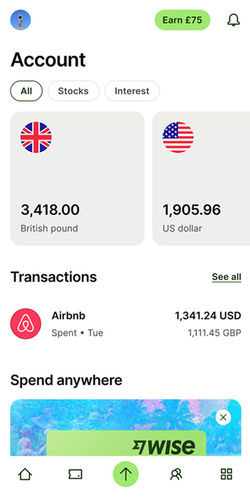
CurrencyFair: The cheapest way to send money to South Korea
CurrencyFair charges $3.953649063562586 per transfer to South Korea, with a 1.17% markup on the KRW exchange rate. This is 0.29% cheaper than the second cheapest option.
To get the most out of your transfer to South Korea, use a bank transfer deposit to maximize the amount of KRW received.
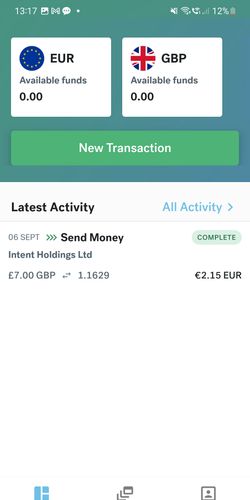
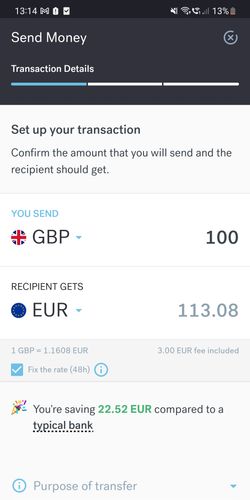
Fastest way to send money to South Korea: Wise
Our data shows that Wise is the fastest way to transfer KRW right now.
With Wise, the transfer time to South Korea is same day (for a $7,000 transfer).
Wise charges $47.31 in fees on $7,000 transfer and adds a -0.04% markup.
The ‘fastest’ way to transfer money to South Korea includes the transfer amount, deposit method, and transfer and withdrawal times.

The easiest way to send money to South Korea: Wise
They’re highly transparent with fees, charging $47.31 per transfer with a -0.04% markup on the KRW mid-market rate.
With multiple deposit and withdrawal options and reliable customer service, getting started with Wise takes less than 10 minutes, making it a fast, cheap, and user-friendly option.

Consider this before sending money to South Korea
Don't settle for the first option. Always compare ways to send money to South Korea to find out about fees, speed, and reliability.
Our analysis included 9 providers that operate in South Korea.
Through this, you get a comprehensive view of all the options you have when sending money to South Korea.
Making large money transfers to South Korea
When sending large amounts of Won to South Korea, it's important to consider factors like the limits, KRW rates, customer support, as well as legal and government-imposed restrictions in South Korea.
Wise is our top recommendation for moving large amounts of KRW.
Whether you're purchasing property in South Korea, need to pay tuition fees, have a wedding there, or transfer money for business in South Korea, Wise will ensure a smooth and secure transaction.
Of all the companies we’ve tested and reviewed that specialize in large KRW transfers, Wise consistently ranked as the top-rated choice.
They charge $47.31 per transfer and apply -0.04% markup on top of the KRW exchange rate, making them perfect for moving big amounts.
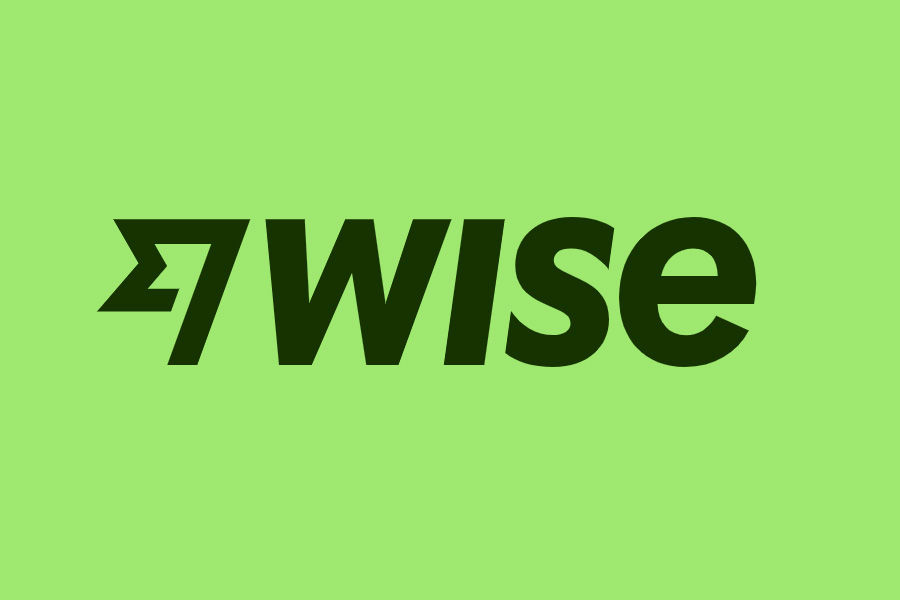
Understand the costs of money transfers to South Korea
The cost of sending KRW depends on where you're sending from, the amount of KRW sent, deposit and delivery methods, transfer fees, and the markup applied to the KRW mid-market rate.
For example, if you're transferring $7,000 from the US to South Korea, you can expect the following:
Transfer fees to South Korea
Depending on the service you use to send Wons, transfer fees can be percentage-based, fixed, or a combination of both.
Paysend charges only $0 per transfer based on our analysis of 9 services supporting KRW transfers in February 2026.
Markup on KRW exchange rate
A markup is a percentage added to the KRW mid-market rate by a money transfer service (or a bank).
Wise offers the best KRW exchange rates by applying a -0.04% markup on the USD-KRW rate. This means for every US Dollar sent, you receive 1,444.0165 KRW minus -0.04% deducted from it.
Funding transfer to South Korea
How you fund your transfer to South Korea can impact the cost:
Bank transfers typically have the lowest fees, often costing up to $0 per transfer.
Debit cards may cost up to $0 per transfer.
Credit cards may come with cash advance fees and increased rates.
Overall, bank transfer is the cheapest funding method for KRW transfers.

Getting the best KRW rate when sending money to Won
The exchange rate is the value of the Won (KRW) compared to other currencies. Since it consistently moves up and down, sending at the high will give your receiver more KRW compared to the low.
In the past 7 days, the KRW exchange rate reached:
An average rate of 1,444.0165 Won per US Dollar
A high of 1,450.1702 KRW per USD
And a low of 1,440.5604 KRW per US Dollar
The KRW/USD exchange rate has seen some movements. Making a transfer when the rate is close to 1,450.1702 KRW/USD will result in more KRW received.
Wise is our top recommendation for sending Won, offering a markup of -0.04% which is 0% better than the next cheapest option.
Get notified when it’s the best time to transfer Wons
Sign up for our rate alerts, and we’ll notify you when it’s the best time to send KRW!
Payment methods available for money transfers to South Korea
The way you fund your transfer to South Korea will impact the speed, cost, and amount of KRW your recipient receives.
Bank transfers
Bank transfer deposits are a common and reliable funding method for sending KRW, offered by most services covering South Korea.
While bank transfers are typically more affordable, it may take up to 3 business days for the KRW to arrive in South Korea.
In our testing of 9 providers, CurrencyFair appeared as the cheapest option for bank transfers to South Korea, charging $3.953649063562586 per transfer with a 1.17% markup (1.1% cheaper than the next cheapest money transfer company).
Avoid using wire transfers to South Korea over the SWIFT network, as they are slower and more expensive due to the bank intermediaries on the way to South Korea. Instead, choose ACH or your local network option.

Credit cards
A credit card deposit is another option for KRW transfers.
Based on our comparison of 9 companies serving South Korea, there are a few available options.
To get the best deal, we as CC transfer fees and rates can vary a lot depending on where you are.
CC deposits are usually more expensive when sending Won, so if you can, opt for a bank transfer deposit or a debit card deposit.
Money transfer to South Korea is an international transaction.
Your credit card company may apply a cash advance fee and higher interest rates for international payments to South Korea. We recommend avoiding credit cards when sending money to South Korea.

Debit and prepaid cards
Debit cards are typically faster but more expensive than bank deposits, with most KRW transfers completed within a few hours.
We recommend using Xe for debit or prepaid card deposits.
With Xe, you’ll pay a 0.82% markup on the KRW rate and $0 in fees when depositing money via the card. This is 0.29% cheaper than using the next cheapest option for transferring money to South Korea.

How we analyze the market
We track the cost, speed, and product offerings of the leading money transfer services available in South Korea.
Our comparison engine and algorithms evaluate providers based on over 25 factors, including transfer fees, ease of use, exchange rates, mobile apps, transfer times & customer support.
We also consider how these services are rated on platforms like TrustPilot, AppStore, and Google Play, giving you a comprehensive view of what to expect.
This thorough analysis helps you get the best available deal - every time you want to move money to South Korea.
We also provide unbiased and detailed reviews of all the top money transfer companies. You can use these reviews to find the best service for your needs when sending money to South Korea
For a deeper understanding of our commitment to integrity and transparency, we invite you to read our editorial policy and review methodology.

Related transfer routes
FAQs
Find answers to the most common questions on our dedicated FAQ page.
Are there any limits when sending KRW?
Are there any tax implications on KRW transfers?
What are the fees and exchange rates?
How long does it take to transfer money to South Korea?
Can I schedule regular payments to South Korea?
What currency is used in South Korea?
Can I send KRW from any country?
What should I do if something goes wrong with my transfer to South Korea?
Can I just wire money to South Korea with my bank?
Can I use MoneyTransfers.com to transfer money?
Tools & resources
Contributors







